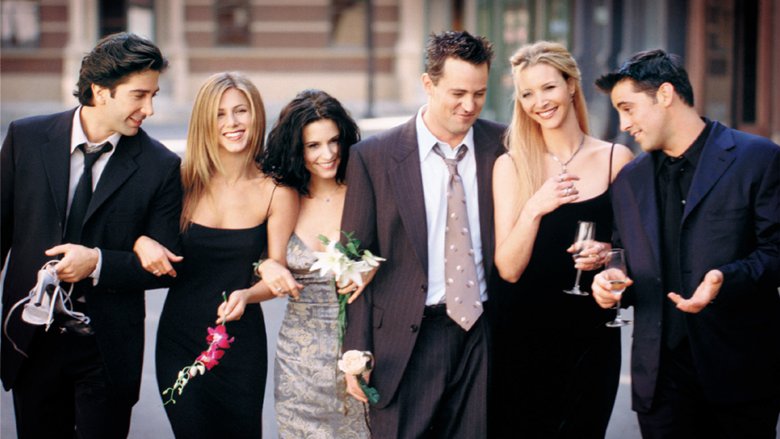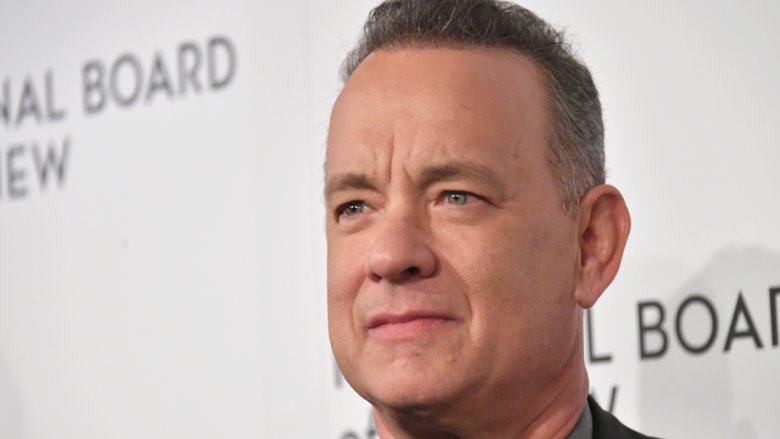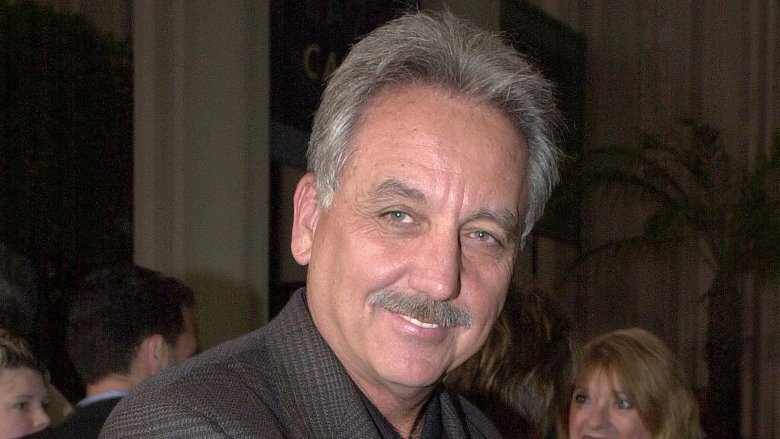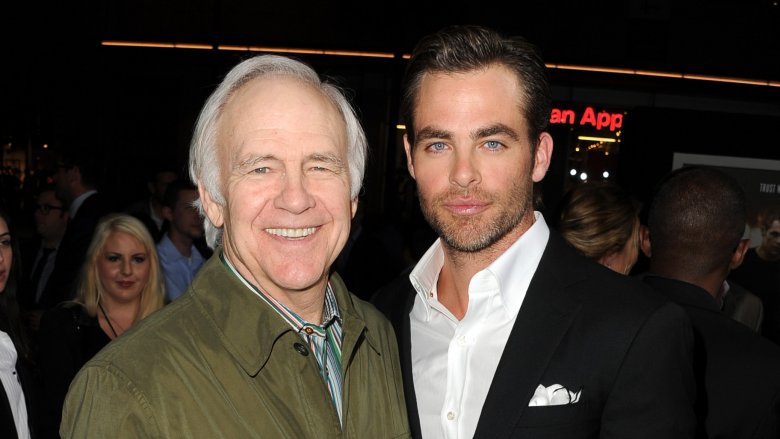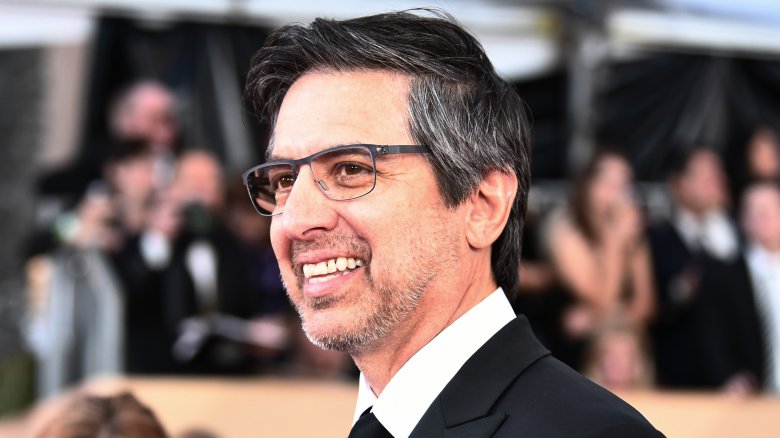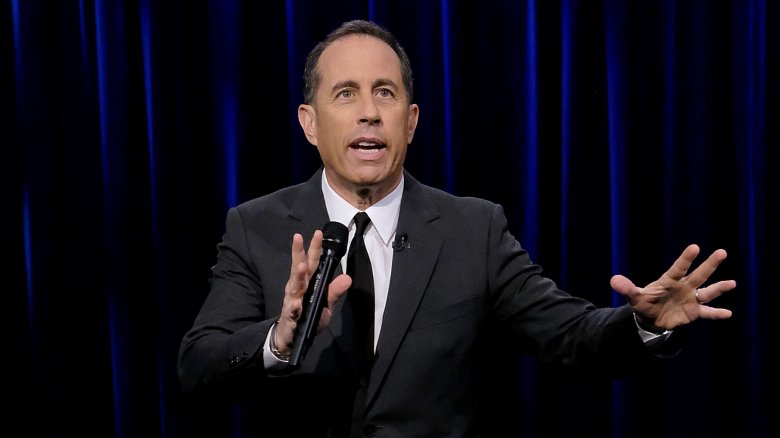Actors Who Make Insane Amounts Of Money Off Of Residuals
Being an actor can be a very lucrative line of work. Some A-list silver screen stars can earn $20 million or more per movie, while the actors on long-running, mega-hit TV shows can pull down $1 million an episode. Even better: They get free catered lunch and snacks from craft services on set all day. Okay, well even better than that: residuals.
Synonymous with Hollywood trade lingo words like "profit participation," "backend deals," and "royalties," residuals mean money that actors receive whenever a movie or TV show they made gets aired on TV, sold to a streaming service like Netflix, or is re-released to movie theaters, or even shown on an airplane. That means they get paid again even though they didn't do anything!
Production companies use a complicated formula to determine how much actors get paid, and some get paid more than others. Estimates may vary, but here are some actors who earn a very substantial living just off of their old work.
So no one told them life was gonna be so lucrative
Friends don't last forever, but Friends just might. The 1994-2004 NBC sitcom ranks with or maybe above Cheers, Seinfeld, and Frasier as one of the most beloved and re-run television comedies of all time. (Never underestimate the drawing power of David Schwimmer, Marcel the monkey, and Gunther.) By the end of the show, collective cast bargaining had boosted the salaries for all six friends on Friends to a very friendly $1 million per episode, each.
The show's reruns went into syndication in 1998, and they've never left, and the entire series went to Netflix in 2015, which has only served to feed the public's insatiable need to watch Ross and Rachel break-up and make up. Basically, Friends is always on, and that translates into big residuals for the cast (well, the main cast—not the guy who plays Mr. Heckles.)
According to USA Today, Friends generates $1 billion a year for production company Warner Bros. Of that, Jennifer Aniston, Courteney Cox, Lisa Kudrow, Matt LeBlanc, Matthew Perry, and Schwimmer are contractually entitled to 2 percent, which works out to about $20 million for each and every one of them.
The best-paying Office job of all time
Ricky Gervais has created and starred in a lot of television shows in the past two decades, including Extras, Derek, and, curiously, the ABC game show Child Support, but he'll forever be known for the series that made him famous and launched a comedy revolution. With Stephen Merchant, Gervais created the BBC comedy The Office, produced in a mockumentary style that would be widely imitated (Modern Family, The Comeback) with a "cringe comedy" aesthetic that became mainstream.
Gervais starred as odious, self-deluded boss David Brent for two seasons of the original Office, but made a fortune when the show was internationally syndicated and remade for other countries, notably the American version of The Office starring Steve Carell as the Brent-esque Michael Scott.
The enduring popularity of his franchised Office has made him very wealthy. According to Celebrity Net Worth, he's valued at about $90 million. Gervais kind of confirmed those figures on his blog (via The Guardian), joking that "there must be a leak at my accountants."
My name's Forrest, Forrest Gump, and I'm rich
A movie's eventual box office haul is like a box of chocolates ... you never know what you're going to get. Sorry, but this is about Tom Hanks's payment structure for Forrest Gump, so an interpolation of his famous catchphrase from that movie is beyond apt.
The 1994 epic dramedy was based on a little-read 1985 novel about American history, so there was really no telling just how well the movie would perform with audiences. But Hanks, star of the movie and America's dad, apparently had a feeling that Forrest Gump was going to be huge, and so he agreed to take on a reduced, upfront salary for acting in the film — about $7 million – in favor of a cut of the film's box office take.
That was an act of luck straight out of the Forrest Gump playbook, because the movie went on to earn about $680 million worldwide, which netted Hanks about $60 million, according to Entertainment Weekly.
Get busy living, or get busy cashing checks
It's a bit of a cliché to remark that the inspiring 1994 prison drama The Shawshank Redemption seems to always be running on TV, particularly on TNT (they know drama,) but it's actually true. According to the Wall Street Journal (via Business Insider), the Morgan Freeman/Tim Robbins classic accounted for 151 hours of airtime in 2014, which works out to around 50 airings, or about once a week.
Freeman and Robbins certainly get a nice chunk of change from their younger selves' dominance of cable television, but it's kind of nice that the movie (which did middling business at the box office on its initial release) generates good money for the members of the supporting cast that helped make the film so special. Veteran and prolific character actor Bob Gunton, who portrays the cruel Warden Norton, told The Wall Street Journal (via Business Insider) that he still gets mad paid. Gunton shared that he was getting "close to six figures by the film's 10th anniversary in 2004," and subsequently has received "a very substantial income" from the film.
He didn't have to Pine for college
Robert Pine is the definition of "working actor" or "character actor." He's never been a star or a leading man, but you've most certainly seen his work if you've ever watched television. Pine has appeared on more than 500 TV episodes since the mid-1960s, a career that spans from Kraft Suspense Theatre to Superstore. In between, he's appeared on Murder, She Wrote, Gunsmoke, Veep, Beverly Hills, 90210, and Good Morning, Miss Bliss. If he's best known for anything, it's for his longest-running TV role, as Sgt. Joe Getraer on the classic, cheesetacular, and curiously capitalized 1977-83 cop show CHiPs.
In a 1998 feature on the world of residuals for the Los Angeles Daily News (reprinted by the Chicago Tribune), Pine revealed that his checks have been all over the place, from ones where "the stamp on the envelope was bigger than the residual inside," to huge windfalls. Altogether, Pine said that his residual checks alone were enough to finance his daughter's college education at UCLA. After she graduated, he was still earning so much from endless reruns of his old work that he had enough to send his son to college, too.
That son, by the way, is Hollywood A-lister Chris Pine.
Everybody loves Ray Romano, particularly his bank
With roles on dramas such as Parenthood, Men of a Certain Age, and Vinyl, stand-up comedian and family sitcom star Ray Romano has proven himself to be a very talented dramatic actor. Those prestige dramas are far removed from Romano's best known work, the Emmy-winning and extraordinarily successful 1996-2005 CBS comedy Everybody Loves Raymond. (He was Raymond.)
Everybody, indeed, loves Raymond, and they still do. Reruns of the show play on local stations and all over cable TV, which means huge residual checks for Romano, the star and co-creator of the series. Perhaps Romano felt free to take on more challenging and surprising roles because he's financially secure enough to do so. According to Forbes (via Vanity Fair), he recently placed third on a list of the highest-paid TV actors, even though he didn't currently have a show on the air. His $18 million haul came almost entirely from Raymond residuals.
What is the deal with constantly replenishing unbelievable wealth?
In part because he's not just the star but also the co-creator of the show, Jerry Seinfeld earns a ton of money when an episode of Seinfeld airs on a local station or Hulu. And those episodes air a lot — it's still a major force in syndicated television, even though its been off the air for 20 years and everyone has seen those episodes 100 times. (Seinfeld is just that good.)
According to Forbes, Jerry Seinfeld earned $900 million over the past decade, primarily from old Seinfeld episodes. That works out to an incredible $90 million a year.
Seinfeld doesn't need to work unless he wants to, which is why his only major live-action projects since Seinfeld ended in 1998 are what one could call "larks"—the reality/game show The Marriage Ref and the web series Comedians in Cars Getting Coffee. People just love Jerry Seinfeld so much so that when CICGC jumped from Crackle to Netflix, Seinfeld pocketed about $100 million, according to The Hollywood Reporter, which is Coinstar money when compared to his Seinfeld cash.

